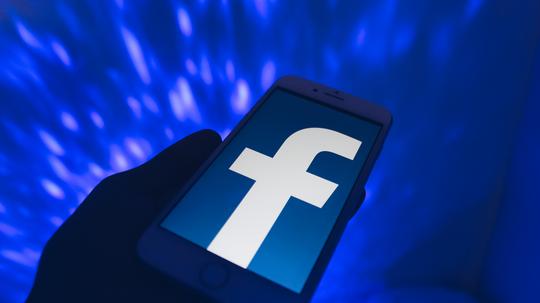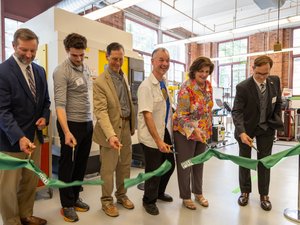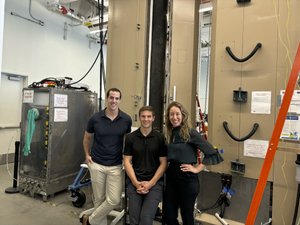
With a grant from the Social Science Research Council and Social Science One, researchers at Northeastern University will be among the very first academics to use data from Facebook to explore how information—and misinformation—travels online.
A team led by assistant professor of political science Nicholas Beauchamp plans to tackle the question of “how social media may have affected polarization, fake news, and political knowledge in the recent era.” That will include misinformation, a.k.a. “fake news,” but it will also include an examination of polarized news—say, who is sharing mostly FOX's Sean Hannity vs. mostly MSNBC's Rachel Maddow.
It’s a difficult question to answer. Political polarization has been increasing on its own for decades, so the Northeastern team's goal is to tease out how much of that can be attributed to the rise in use of social media.
“To what degree is the rise of fake or extreme news sharing due specifically to the peer to peer structure?” Beauchamp asked. “Social media brings more peer-to-peer connections, particularly digital connections, but at the same time, it’s been co-evolving with the political environment.”
To that end, the team will center its research around a single moment in January 2018, when Facebook abruptly changed its algorithm to downrank information coming from elite media sources and prioritize information coming from family and friends. If the shift toward peer-sourced information correlates with a shift toward polarization, that’s significant.
“If we suddenly find a rise in emotionally extreme, ideologically extreme, or fake news in the post-switch period versus the pre-switch, that can give us a sense of, ‘Yeah, the lateral-ness really does play a role here,’” Beauchamp said.
Beauchamp’s team includes David Lazer, co-director of the NULab for Texts, Maps, and Networks; Donghee Jo, assistant professor of economics; Kenneth Joseph, now a professor at the University of Buffalo who was previously a postdoc at Northeastern's Network Science Institute; and Lu Wang, assistant professor of computer science.
The data this team will have access to is not what we might think of when we say “Facebook data.” It will not include posts or photos by individual users, for example. As Beauchamp and Lazer both noted, that would likely be difficult to anonymize. Instead, the data is probably best described as “high-level descriptive data of URL popularity,” Beauchamp said. “URL-level, demographic data basically, is what it is. It’s saying, in this particular period of time, people of this demographic in this region, shared this URL 150 times or something like that.”
The partnership between Facebook and Social Science One dates back to April 2018. The goal is to leverage Facebook data to study the effect of social media on democracy and elections.
“Some of these data from Facebook could allow us to understand how our democracy is operating right now and what role Facebook in particular could play to support certain types of interactions,” Lazer said.
Beauchamp has studied political polarization using (far more public) Twitter data before, but he recognizes that Twitter is a small subset of a highly politically engaged population.
“Facebook is a different slice of the social world,” Beauchamp said. “The content there tends to be a little bit richer. The social network tends reach down further into the mass public; there's maybe more lateral connections among non-elites within the Facebook data. There's always been sort of a vague sense of, ‘It’d be great if we got to work with Facebook data,’ but there's usually been a pretty high barrier to working with Facebook data.”
The social media giant has been historically cagey about letting academics access its data. (For this reason, Facebook was the target of much ire at a Harvard conference I covered for Storybench in 2017.) It might have had good reason: Back in 2012, data scientists did experiment with Facebook, skewing what almost 700,000 Facebook users saw over the course of a week by adding in positive or negative words. The manipulated users were later more likely to post positive or negative content themselves.
The experiment, and its results, were published in a 2014 paper, to much outrage over privacy concerns. Since then, Facebook has not published any comprehensive data.
Of course, the researchers have not actually been given access to the new data yet. In June, they will travel, along with the other teams in the inaugural grant cohort, to California to receive training from Facebook itself. Later in the summer, they’ll have a better picture of what they’re working with.
“The question of how people access information about the world is quite important in democracy, because there is a normative sovereignty of citizens in the democracy, and the only way to really exercise that sovereignty is by knowing about the state of the world,” Lazer said. “If you’re misinformed, the promise of democracy becomes empty.”








